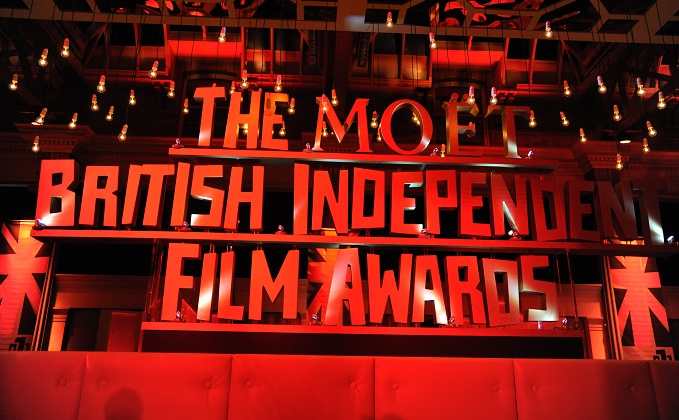The Interview Review
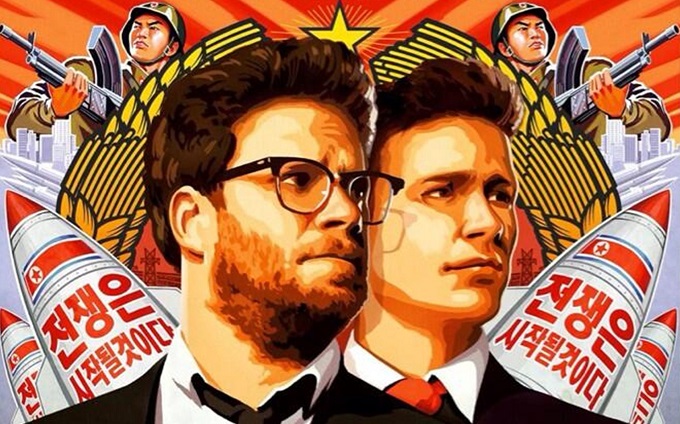
The Plot:
A cocky TV chat show host and his good intentioned producer manage to secure an unlikely interview with the reclusive North Korean dictator Kim Jong-Un. They are quickly persuaded by the CIA to use this historic opportunity to discreetly assassinate the ‘supreme leader’ for the good of America and the world. But when they arrive in the infamously secretive state things don’t exactly go to plan.
The Good
Randall Park plays North Korea’s infamous leader Kim Jong-Un as a deranged cry baby with daddy issues and a secret penchant for fruity cocktails and Katy Perry. Lurching from soft spoken vulnerability to crazy screaming tyrant it’s a convincingly delusional caricature. Park plays the notorious ‘supreme leader’ almost like a more rotund Mr Chow from the Hangover. In truth it’s not a difficult challenge to mock the reclusive dictator as few people outside of the North Korean military elite have any real concept of who Kim Jong-Un truly is. Park essentially has free licence to make him as maniacal or pathetic as he likes.
Seth Rogen and James Franco have a well-practiced chemistry based on a simple but effective formula of offsetting Franco’s smug charms with Rogen’s oafish likeability. The pair is undeniably well typecast as obnoxious host Dave Skylark and his increasingly disillusioned producer sidekick Aaron Rapaport. They trade innuendos and moronic banter with all their usual enthusiasm. It isn’t sophisticated or subtle but it is at least often amusing.
Overall the film benefits from some snappy action montages, a catchy soundtrack and a few memorable gags. It even manages to coin the term ‘honeydicking’ as an unlikely catchphrase.
The Bad
Without the immeasurable hype created by the Sony hacking scandal and the studios seeming hesitation to subsequently release the film, it’s doubtful interest in a low brow Seth Rogen/James Franco comedy vehicle could ever have been this high. Fans of the duos trademark unapologetic mix of dick jokes and drug addled buffoonery will certainly enjoy this latest offering. However it may not be enough to satisfy those watching the film just to see what all the diplomatic fuss is about.
Comedy and satire have always been powerful weapons against oppression, evil or tyranny. Reducing symbolic figures of hate and fear to the level of common ridicule is a laudable aim. Unfortunately The Interview often fails to deliver the kind of biting political satire optimistic audiences might have hoped for. The comedic potential provided by propaganda fuelled dictatorial regimes is largely squandered in favour of jokes about hiding things in your ass and lazy pop culture references.
Rogen and Franco deliver exactly what you’d expect, but it’s fair to say that the film could just as easily have centred on a fictitious country and dictator. The potentially daring choice to actually make a comedy about North Korea really adds little to the film beyond absurd international controversy and the resulting mostly unnecessary hype. Whatever this film has to say about North Korea, it’s important to remember Matt Stone and Trey Parker said it first with Team America.
The Ugly Truth
The Interview is a satisfying slice of silly slapstick, though it’s very unlikely to win awards or actually change the world. It’s not hard to see why North Korea weren’t amused, but the rest of the world just might be. In truth the film is likely to divide opinions between those who welcome poking fun at Kim Jong-Un and those who feel a little disappointed that this only comes in the form of a ludicrous James Franco comedy. Possibly the funniest thing about The Interview is that it actually somehow managed to start the world’s first major cyber-war.
London Critics’ Circle Film Awards Nominations 2015
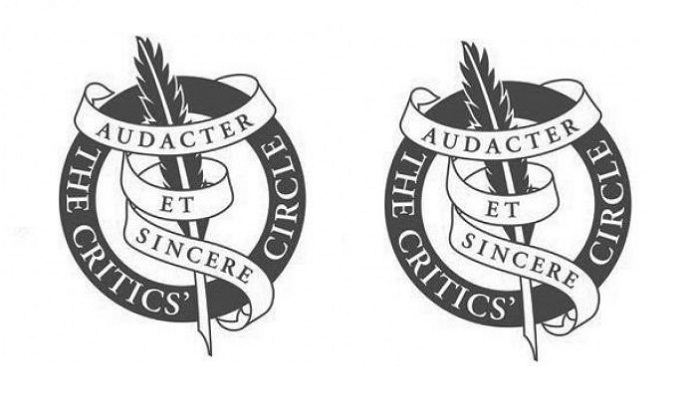
The London Film Critics’ Circle has announced the nominations for its 35th annual awards ceremony, with Mike Leigh’s historical biopic Mr Turner leading the way with seven nominations, including Film of the Year and British Film of the Year.
Close behind in the race for the awards, voted on by 140 of the UK’s leading print, online and broadcast film critics, is Alejandro Gonzalez Iñárritu’s Birdman. The film-industry satire scored six nominations, including Film of the Year, Director of the Year and Actor of the Year for star Michael Keaton.
The nominations were announced today at London’s May Fair Hotel by Jeremy Irvine and Phoebe Fox, stars of the upcoming The Woman in Black: Angel of Death. The black-tie ceremony on 18 January will be hosted by Alice Lowe and Steve Oram, who won the Breakthrough British Filmmakers award for their screenplay for 2012′s Sightseers.
In the acting fields, Julianne Moore scored a rare double in the Actress of the Year category, earning two nominations for her contrasting roles in David Cronenberg’s black comedy Maps to the Stars and Richard Glatzer and Wash Westmoreland’s Alzheimer’s-themed drama Still Alice.
Other actors cited twice are Timothy Spall (Mr Turner), Eddie Redmayne (The Theory of Everything) and Benedict Cumberbatch (The Imitation Game), all three of whom will compete for both Actor of the Year and British Actor of the Year.
Among the ten films shortlisted for Film of the Year are Richard Linklater’s Boyhood, Wes Anderson’s The Grand Budapest Hotel, Jonathan Glazer’s Under the Skin and James Marsh’s The Theory of Everything. All four films scored five nominations apiece, as did Alan Turing biopic The Imitation Game, which will compete for British Film of the Year alongside Mr Turner, Under the Skin, The Theory of Everything and Pride.
Rounding out the 10 nominees for Film of the Year are American independents Nightcrawler and Whiplash, as well as foreign-language contenders Ida and Leviathan.
The winners will be announced at a ceremony on Sunday 18 January 2015 at The May Fair Hotel, which is sponsoring and hosting the proceedings for the third year running. Last year’s ceremony saw Steve McQueen’s Oscar-winning 12 Years a Slave crowned Film of the Year, while veteran actor Gary Oldman accepted the Dilys Powell Award for Excellence in Film.
35th LONDON CRITICS’ CIRCLE FILM AWARDS NOMINATIONS
FILM OF THE YEAR
Birdman
Boyhood
The Grand Budapest Hotel
Ida
Leviathan
Mr Turner
Nightcrawler
The Theory of Everything
Under the Skin
Whiplash
FOREIGN LANGUAGE FILM OF THE YEAR
Ida
Leviathan
Norte, The End of History
Two Days, One Night
Winter Sleep
BRITISH FILM OF THE YEAR
The Imitation Game
Mr Turner
Pride
The Theory of Everything
Under the Skin
DOCUMENTARY OF THE YEAR
20,000 Days on Earth
Citizenfour
Manakamana
Next Goal Wins
Night Will Fall
ACTOR OF THE YEAR
Benedict Cumberbatch – The Imitation Game
Jake Gyllenhaal – Nightcrawler
Michael Keaton – Birdman
Eddie Redmayne – The Theory of Everything
Timothy Spall – Mr Turner
ACTRESS OF THE YEAR
Marion Cotillard – Two Days, One Night
Essie Davis – The Babadook
Scarlett Johansson – Under the Skin
Julianne Moore – Maps to the Stars
Julianne Moore – Still Alice
SUPPORTING ACTOR OF THE YEAR
Riz Ahmed – Nightcrawler
Ethan Hawke – Boyhood
Edward Norton – Birdman
Mark Ruffalo – Foxcatcher
JK Simmons – Whiplash
SUPPORTING ACTRESS OF THE YEAR
Patricia Arquette – Boyhood
Marion Bailey – Mr Turner
Jessica Chastain – A Most Violent Year
Agata Kulesza – Ida
Emma Stone – Birdman
BRITISH ACTOR OF THE YEAR
Benedict Cumberbatch – The Imitation Game
Tom Hardy – Locke, The Drop
Jack O’Connell – Starred Up, ’71 & Unbroken
Eddie Redmayne – The Theory of Everything
Timothy Spall – Mr Turner
BRITISH ACTRESS OF THE YEAR
Emily Blunt – Into the Woods & Edge of Tomorrow
Felicity Jones – The Theory of Everything
Keira Knightley – The Imitation Game, Begin Again & Say When
Gugu Mbatha-Raw – Belle
Rosamund Pike – Gone Girl & What We Did on Our Holiday
YOUNG BRITISH PERFORMER OF THE YEAR
Daniel Huttlestone – Into the Woods
Alex Lawther – The Imitation Game
Corey McKinley – ’71
Will Poulter – The Maze Runner & Plastic
Saoirse Ronan – The Grand Budapest Hotel
DIRECTOR OF THE YEAR
Wes Anderson – The Grand Budapest Hotel
Jonathan Glazer – Under the Skin
Alejandro G Iñárritu – Birdman
Richard Linklater – Boyhood
Mike Leigh – Mr Turner
SCREENWRITER OF THE YEAR
Wes Anderson – The Grand Budapest Hotel
Damien Chazelle – Whiplash
Dan Gilroy – Nightcrawler
Alejandro G Iñárritu, Nicolás Giacobone, Alexander Dinelaris & Armando Bo – Birdman
Richard Linklater – Boyhood
BREAKTHROUGH BRITISH FILMMAKER
Hossein Amini – The Two Faces of January
Elaine Constantine – Northern Soul
Yann Demange – ’71
Iain Forsyth & Jane Pollard – 20,000 Days on Earth
James Kent – Testament of Youth
TECHNICAL ACHIEVEMENT AWARD
’71 – Chris Wyatt, editing
Birdman – Emmanuel Lubezki, cinematography
Dawn of the Planet of the Apes – Joe Letteri, visual effects
The Grand Budapest Hotel – Adam Stockhausen, production design
Inherent Vice – Mark Bridges, costumes
Leviathan – Mikhail Krichman, cinematography
Mr Turner – Dick Pope, cinematography
A Most Violent Year – Kasia Walicka-Maimone, costumes
Under the Skin – Mica Levi, score
Whiplash – Tom Cross, editing
British Independent Film Awards 2014 Winners
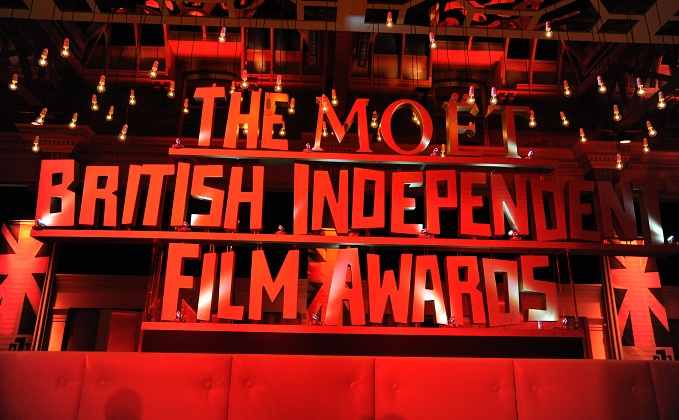
A glittering array of talent turned out this evening for the 17thMoët British Independent Film Awards. The winners were announced at the star-studded ceremony, held at Old Billingsgate, which was hosted by The Inbetweeners star, Simon Bird.
The lucky winners took home the iconic award designed by Fredrikson Stallard and created by Swarovski as well as a personalised, Swarovski crystal encrusted magnum of Moët & Chandon.
Best British Independent Film was won by PRIDE. Yann Demange won Best Director for ’71, Gugu Mbatha-Raw won Best Actress for BELLE and Brendan Gleeson won Best Actor for CALVARY. Andrew Scott collected his award for Best Supporting Actor for PRIDE and Imelda Staunton took home her award for Best Supporting Actress also for her role in PRIDE.
PRIDEwon the most awards on the night, picking up Best British Independent Film, Best Supporting Actress and Best Supporting Actor.
Joint Directors; The Moët British Independent Film Awards Johanna von Fischer & Tessa Collinson said: “In our final year as Directors it is terrific to see such an amazing mix of the established and new being represented in our honourees tonight. The range of diverse and unique talent in this country is awe inspiring. Our jury has had some truly tough decisions to make. We hope these results will excite audiences and encourage more people to search out these films creating a greater demand for British Independent cinema. 2014 also sees us celebrate five years of a fabulous partnership with title sponsor Moët & Chandon, who add that extra sparkle each year for which we are incredibly grateful.”
As previously announced, Emma Thompson was awarded the coveted Richard Harris Award for outstanding contribution by an actor to British film, and Benedict Cumberbatch the Variety Award, which recognises an actor, director, writer or producer who has helped to shine the international spotlight on the UK. The Special Jury Prize went to John Boorman.
The Raindance Award was won by LUNA. Elliot Grove, Founder of BIFA and the Raindance Film Festival added; “British filmmakers are at the top of their game and amongst the most creative in the world, covering a diverse range of stories, passionately told and featuring outstanding acting talent. BIFA is proud to lead the celebrations at the start of the Award season.”
The Moët British Independent Film Awards are proud to announce the following winners for 2014 (highlighted below in red):
BEST BRITISH INDEPENDENT FILM Pride
BEST DIRECTOR Yann Demange – ’71
BEST DEBUT DIRECTOR Iain Forsyth, Jane Pollard – 20,000 Days on Earth
BEST SCREENPLAY Jon Ronson, Peter Straughan – Frank
BEST ACTRESS Gugu Mbatha-Raw – Belle
BEST ACTOR Brendan Gleeson – Calvary
BEST SUPPORTING ACTRESS Imelda Staunton – Pride
BEST SUPPORTING ACTOR Andrew Scott – Pride
MOST PROMISING NEWCOMER Sameena Jabeen Ahmed – Catch Me Daddy
BEST ACHIEVEMENT IN PRODUCTION The Goob
BEST TECHNICAL ACHIEVEMENT Stephen Rennicks – Music – Frank
BEST DOCUMENTAR Y Next Goal Wins
BEST BRITISH SHORT The Kármán Line
BEST INTERNATIONAL INDEPENDENT FILM Boyhood
THE RAINDANCE AWARD Luna
THE RICHARD HARRIS AWARD Emma Thompson
THE VARIETY AWARD Benedict Cumberbatch
THE SPECIAL JURY PRIZE John Boorman
Now in its 17th year, the Awards were created by Raindance in 1998 and set out to celebrate merit and achievement in independently funded British filmmaking, to honour new talent, and to promote British films and filmmaking to a wider public.
Previous winners of the prestigious Best British Independent Film Award include METRO MANILA, TYRANNOSAUR, THE KING’S SPEECH, MOON, CONTROL, SLUMDOG MILLIONAIRE, THE CONSTANT GARDENER and THIS IS ENGLAND.
Proud supporters and patrons of The Moët British Independent Film Awards include Mike Figgis, Tom Hollander, Adrian Lester, Ken Loach, Ewan McGregor, Helen Mirren, Samantha Morton, James Nesbitt, Michael Sheen, Trudie Styler, Tilda Swinton, Meera Syal, David Thewlis, Ray Winstone and Michael Winterbottom.
The Hobbit The Battle of the Five Armies Review
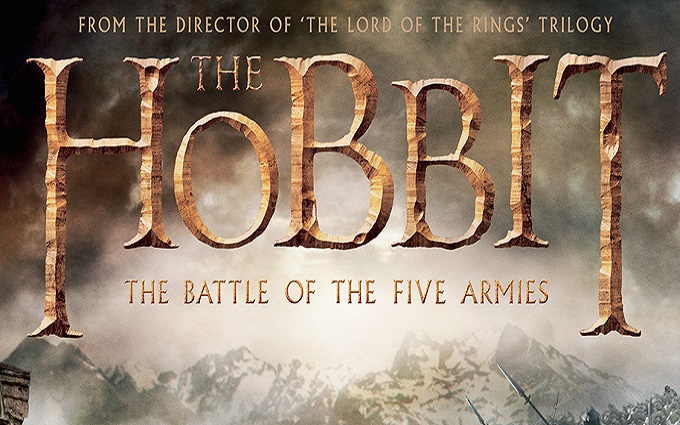
The Plot:
In the third instalment of The Hobbit trilogy, finally completing the epic Tolkien franchise, the battle continues to rage for the riches of the fabled Mountain Kingdom of Erebor. Diminutive Hobbit hero Bilbo Baggins and the forces of good stand against an ancient evil and a deadly array of monstrous foes. As Dwarves, Men, Wizards, Dragons and Elves each play their part in shaping the destiny of middle earth…
The Good:
After literally decades of production, patient Tolkien fans finally have a complete six film saga with the Hobbit and Lord of the Rings trilogies both at last complete. The Battle of The Five Armies is a satisfying final piece of that vast fantasy adventure, delivering the usual mix of CGI wizardry and shamelessly epic storytelling.
Those that found the earlier Hobbit films lacking in pace will be pleased to see the final chapter open with a spectacular action sequence. As the wicked dragon Smaug brings down fiery death and destruction on the poor inhabitants of middle earth. From this literally explosive beginning, the film moves quickly, pulling together now familiar faces from the entire saga to give fantasy fans and blockbuster crowds the precisely promised climactic battle. The near constant fighting in this film equals the technically high standards of the previous films, but offers enough new adversaries and memorable moments to distinguish it beyond simply repeating successful CGI formulas.
The returning cast including firm fan favourites like Sir Ian McKellan’s Gandalf and Orlando Bloom as princely elf warrior Legolas each deliver excellent performances with effortless ease. Sherlock star Martin Freeman remains perfectly typecast as unlikely hero Bilbo Baggins and Evangeline Lilly is suitably enchanting as elf heroine Tauriel. Richard Armitage also has a chance to flex some dramatic muscles between wielding his sword in battle, as Thorin confronts his inner demons.
The Bad:
Those who failed to feel the magic of Peter Jackson previous middle earth epics are perhaps unlikely to suddenly discover it here. Jackson’s impressively crafted battle scenes will not win over those uninspired by whimsical adventures so absolutely detached from real life. Likewise those left numb by the franchises notoriously long running times will likely still find the film’s comparatively trimmed down 144minutes a little daunting. If you lack patience or an appetite for the fantasy genre then this won’t be an easy ride.
In particular those already watching the clock may find that interrupting the action for frequent slow motion reaction shots and expositional dialogue leaves them more frustrated than emotional. Being perhaps overly cynical it’s noticeably convenient just how often characters manage to have friendly chats, bickering arguments or exchange lingering gazes in the midst of war torn battlefields.
Though the film has poignant conclusions to a number of character arcs, it feels obliged to include occasional instances of heavy handed but ineffective humour. Weasley coward Alfrid played by Ryan Gage is guilty of most of this. As with the Lord of the Rings it simply feels like the film would have been a shorter more compelling adventure without these pointless moments of attempted levity.
That being said the film does similarly find time to wade through lengthy melodrama, as clearly heroic characters like Dwarf leader Thorin, battle greed and paranoia long before they ever draw swords with an actual enemy. Though these struggles all play out in the context of a wider saga and expansive journeys for the various characters, the corrupting madness of power is an all too familiar theme for this franchise.
Though the film boasts largely impressive special effects there are occasional moments where less convincing CGI proves distracting. Legolas unbelievably defying the laws of gravity even more than usual is a specific example of this. Without ignoring the amazing digital achievements and artistry behind the film, the sheer scale of the action means it sometimes lacks the tactile credibility of practical effects.
The Ugly Truth:
The Hobbit trilogy has stood on the impressive shoulders of the cinematic Lord of the Rings saga which preceded it, to at least match its technical brilliance. This action packed final chapter will delight devoted Tolkien fans and casual blockbuster crowds equally. The series violent conclusion is propelled with a sense of urgency towards an undeniably satisfactory finale. Jackson gives fans a must see middle earth adventure, possibly for one last time.
Check out full London Press Conference Interviews below:
British Independent Film Awards 2014 Nominations
This weekend the winners will be announced for the British Independent Film Awards. The Imitation Game, Pride, ’71, Mr Turner and Frank lead the field with multiple nominations. Benedict Cumberbatch is set to be honored with this year’s Variety Award, while Emma Thompson receives the Richard Harris Award. Full nominations list below:
Best Director
The Douglas Hickox Award [Best Debut Director]
Matthew Wolf and Daniel Wolfe for Catch Me Daddy
Hong Khaou for Lilting
Iain Forsyth and JanePollard for 20,000 Days on Earth
Morgan Matthews for X + Y
Yann Demange for ’71
Best Screenplay
Best Supporting Actor
Best Technical Achievement
Best Documentary
